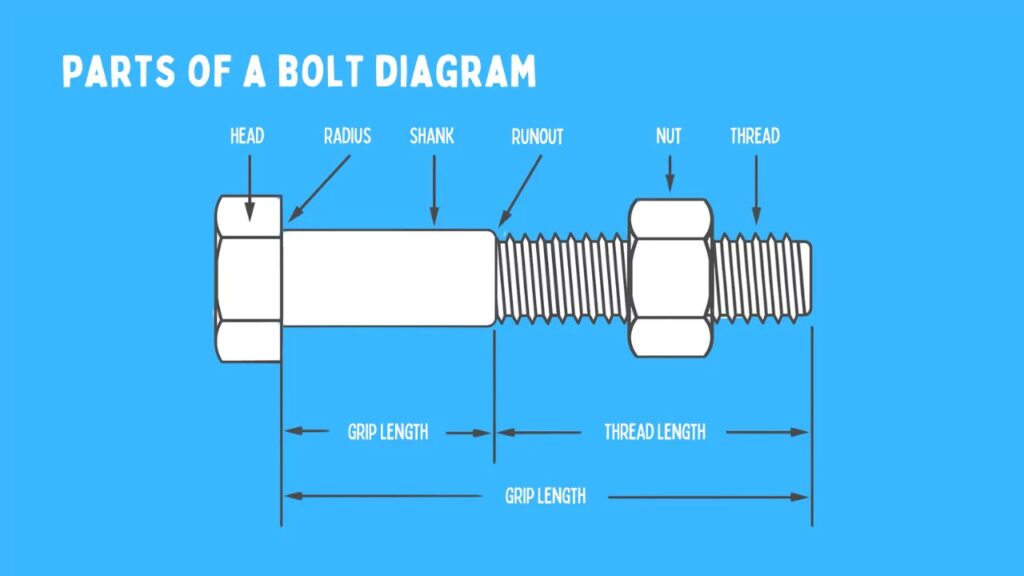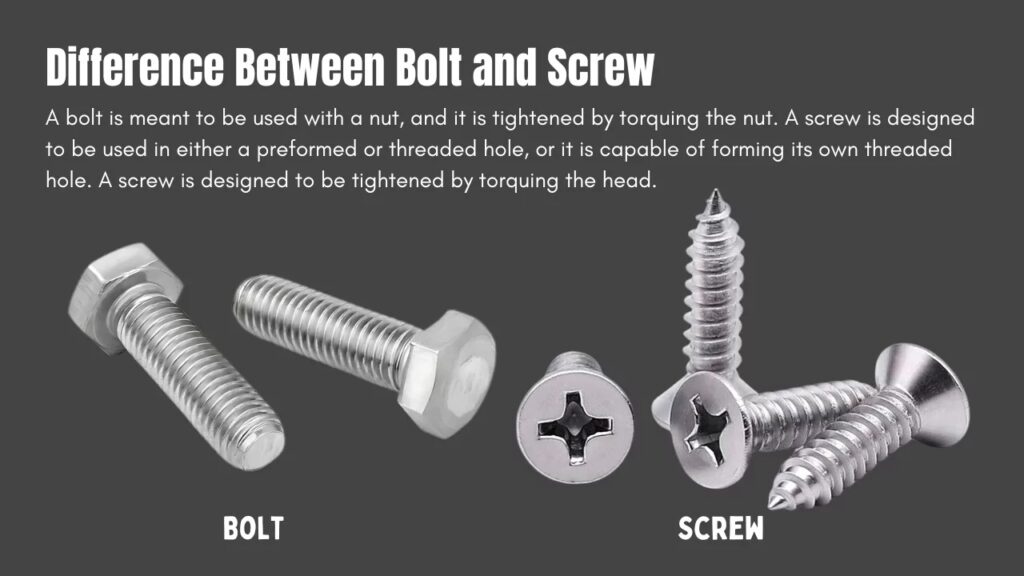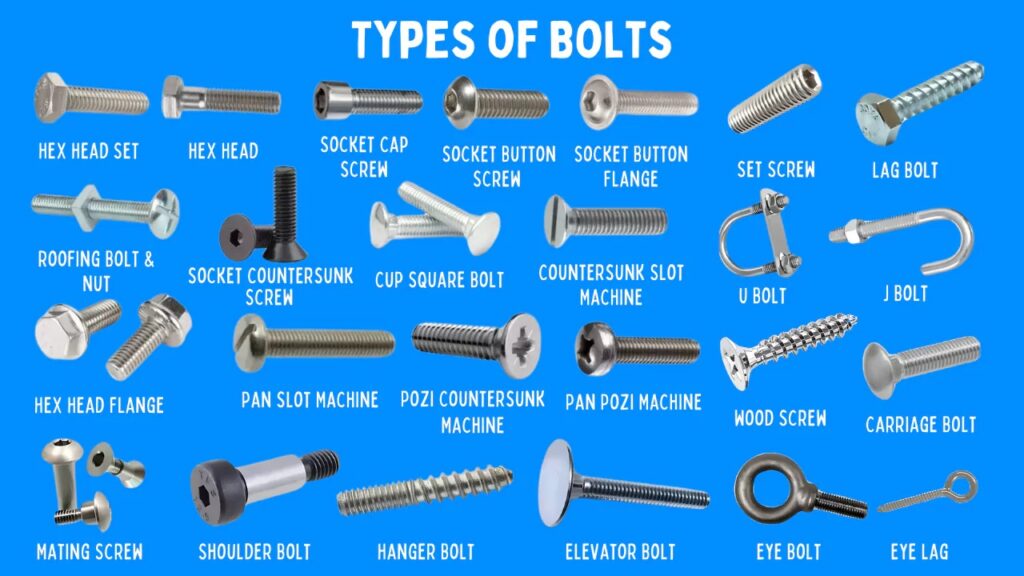From towering skyscrapers to the engine under your car’s hood, bolts quietly hold our world together—but what exactly is a bolt? These unassuming fasteners play a massive role in construction, manufacturing, and everyday life, yet their importance often goes unnoticed until something needs fixing. Whether you’re a DIY enthusiast, a student, or an engineer, understanding bolts can make your projects stronger and smarter.
In this guide, we’ll answer the question, “What is a bolt?” by exploring its definition, how it differs from a screw, the various types available, and where you’ll find them in action. We’ll also touch on how bolts are made, with insights from Xiluo Mold, a leader in precision mold manufacturing for fasteners since 2002. Ready to dive into the world of bolts? Let’s get started!
Bolt Definition: What Is a Bolt?
So, what is a bolt? At its core, a bolt is a threaded fastener designed to pass through objects and secure them with a nut. Unlike screws, which often tap into materials directly, bolts rely on this nut-and-thread combo to create a strong, reusable joint.
Key features define a bolt:
- External Threads: Spiral grooves along the shaft that mate with a nut.
- Head: Typically hexagonal (but varies), providing a surface to turn with a wrench.
- Shank: The unthreaded portion (if present) that adds strength under load.
Bolts are all about how they work: they clamp materials together by applying tension, making them ideal for heavy-duty applications. Precision is critical here, and companies like Xiluo Mold ensure this by crafting high-precision molds—like nut forming dies—that produce bolts to exact standards for industries worldwide.

Bolt vs. Screw: What’s the Difference?
Ever wondered how bolts are different from screws? It’s a common question, and the answer lies in design and use:
- Bolts:
- Paired with a nut for fastening.
- Used to join unthreaded objects (e.g., two metal plates).
- Often larger and stronger, built for heavy loads.
- Example: Securing a car’s suspension.
- Screws:
- Tap into materials (e.g., wood) or fit pre-threaded holes.
- Typically don’t need a nut.
- Smaller and suited for lighter tasks.
- Example: Assembling a wooden shelf.
The distinction isn’t always strict—some bolts can function without nuts in tapped holes—but generally, bolts excel in high-strength, removable joints, while screws shine in simpler fixes. This difference shapes how they’re made, too, with Xiluo Mold’s expertise ensuring bolts meet the precision needed for their demanding roles.

Types of Bolts
Bolts come in many shapes and sizes, each designed for specific tasks. Here’s a look at some common types of bolts explained:
Common Bolt Types
- Hex Bolts:
- Features: Six-sided head, fully or partially threaded.
- Uses: Construction, machinery, automotive—versatile and easy to tighten.
- Example: Holding steel beams together.
- Carriage Bolts:
- Features: Rounded head, square neck to prevent turning in wood.
- Uses: Wood-to-metal or wood-to-wood connections.
- Example: Securing deck boards.
- Anchor Bolts:
- Features: L-shaped or straight, embedded in concrete.
- Uses: Attaching structures to foundations.
- Example: Stabilizing a building’s base.
- Eye Bolts:
- Features: Looped head for attaching ropes or cables.
- Uses: Lifting, rigging, or anchoring.
- Example: Hoisting equipment in a factory.
Xiluo Mold’s precision molds—like our nut forming dies—support the production of bolts such as hex and anchor types, ensuring they meet the exact tolerances required for these diverse applications.

What Are Bolts Made Of?
Bolts aren’t just shaped—they’re engineered from materials chosen for strength, durability, and environment. So, what is a bolt made of?
- Steel:
- Carbon Steel: Affordable, strong, common for general use.
- Stainless Steel: Corrosion-resistant, ideal for outdoor or wet conditions.
- Brass: Lightweight, rust-proof, used in decorative or electrical applications.
- Titanium: High strength-to-weight ratio, perfect for aerospace or high-performance needs.
Bolt Uses: Where Are They Found?
Bolts are everywhere, securing the things we rely on daily. Here are some key bolt uses:
- Construction:
- What Is a Bolt Used for in Construction? Bolts like hex and anchor types connect steel beams, fasten columns, and anchor buildings to foundations.
- Example: A skyscraper’s skeleton relies on bolts for stability.
- Automotive:
- Bolts hold engines, chassis, and suspensions together, enduring vibration and stress.
- Example: Hex bolts secure a car’s wheel assembly.
- Machinery:
- Heavy equipment uses bolts to join moving parts, ensuring reliability under pressure.
- Example: Eye bolts lift industrial motors.
Their strength and reusability make bolts indispensable. Xiluo Mold’s molds help manufacturers create these critical fasteners with the precision needed for such high-stakes roles.
Visual Suggestion: Include a photo montage of bolts in construction, cars, and machinery.
How Are Bolts Made
Understanding how bolts work includes knowing how they’re crafted. The bolt manufacturing process typically involves:
- Wire Drawing: Steel wire is drawn to the right diameter.
- Cold Forming: The wire is cut and shaped into a bolt blank using a heading die, then threaded via rolling dies.
- Heat Treatment: Bolts are hardened for strength and durability.
- Finishing: Plating (e.g., zinc) or polishing adds corrosion resistance.
This process demands precision, especially for high-performance bolts. Xiluo Mold’s carbide heading dies and flat thread rolling dies ensure every bolt is shaped accurately, supporting manufacturers globally since 2002.
Conclusio
So, what is a bolt? It’s a threaded fastener that, paired with a nut, secures everything from bridges to engines with unmatched strength and reliability. Whether it’s a hex bolt in construction or an eye bolt in rigging, bolts are defined by their design, materials, and purpose—distinct from screws and tailored to heavy-duty tasks.Next time you’re tackling a project or designing a product, knowing your bolts can make all the difference. Need high-quality bolts or the molds to make them? Xiluo Mold has been crafting precision fastener solutions for over 23 years—reach out at sunny@xiluomold.com to explore how we can support your needs!




